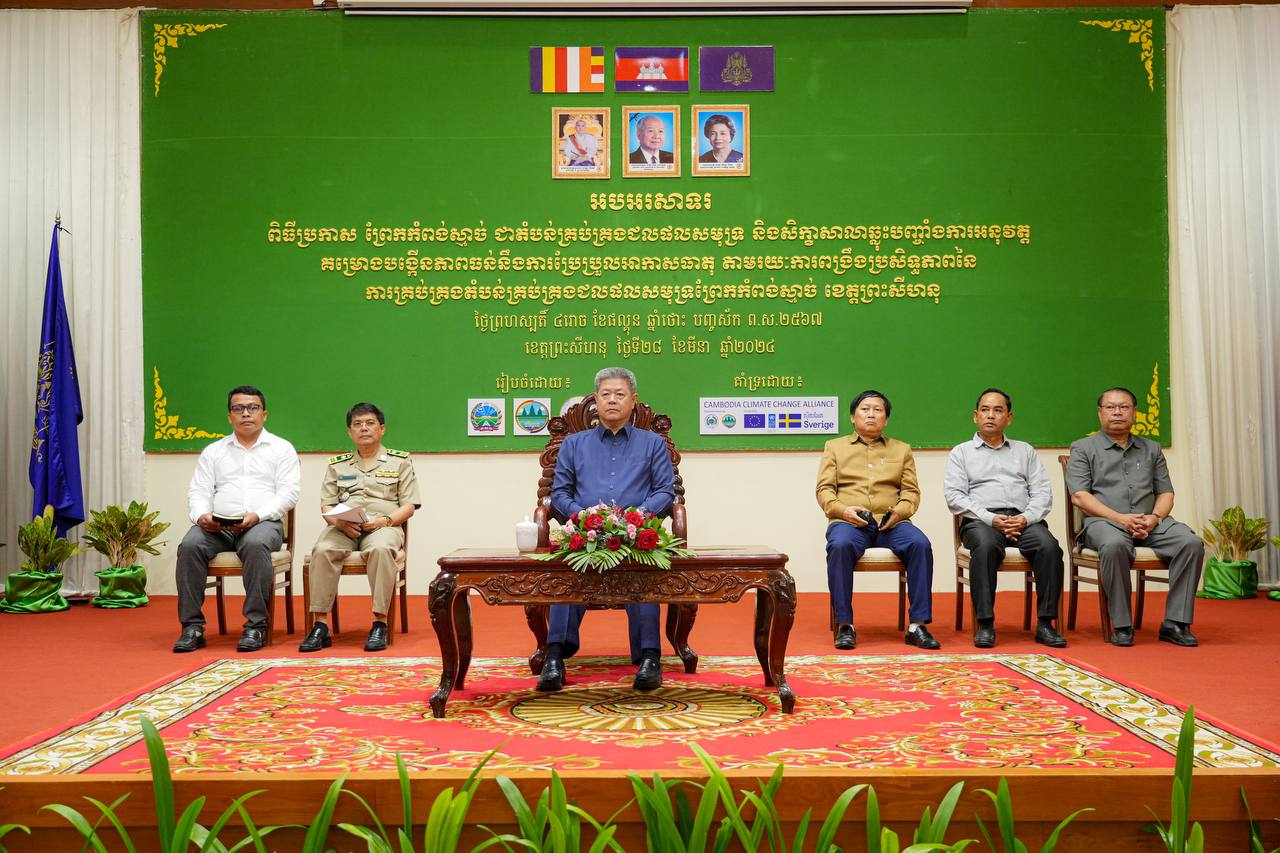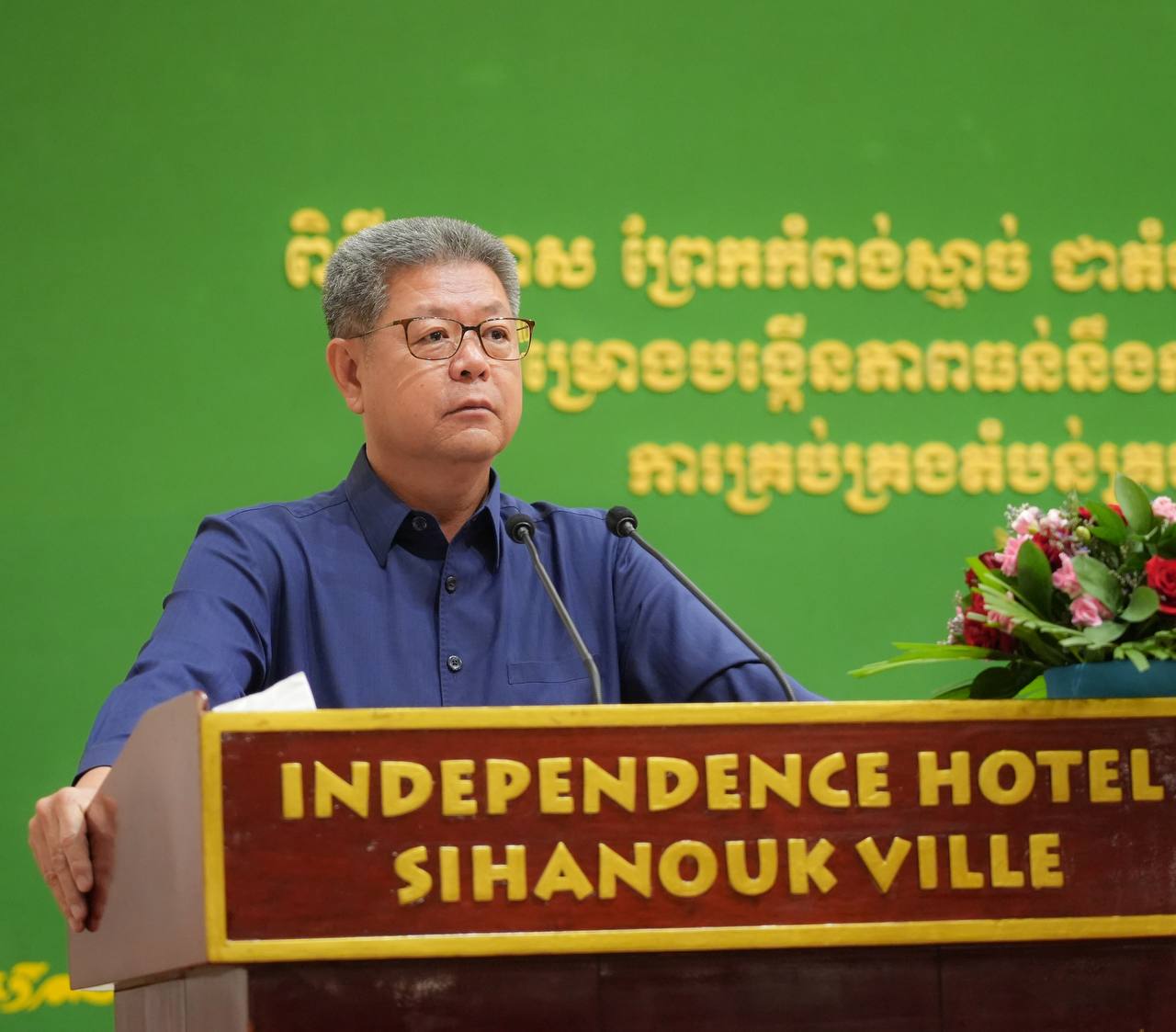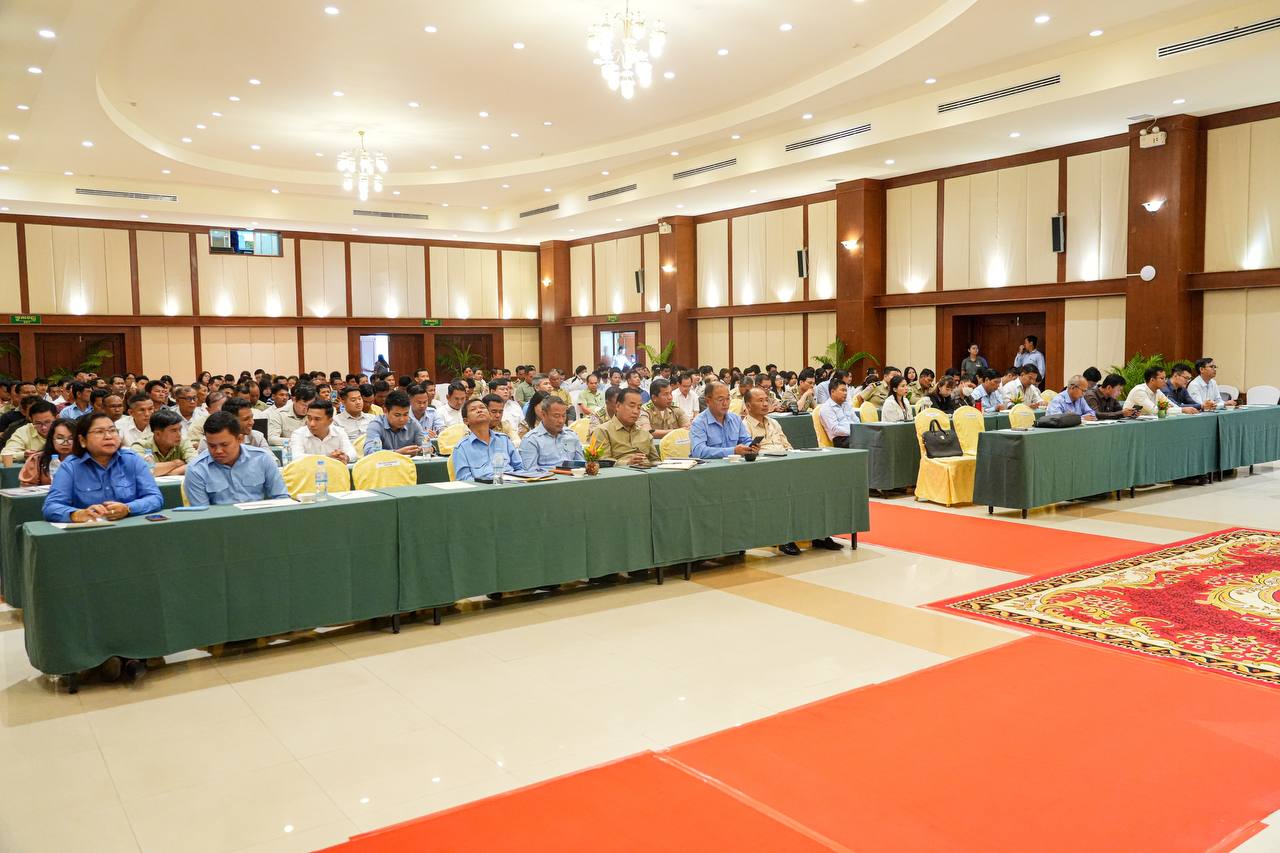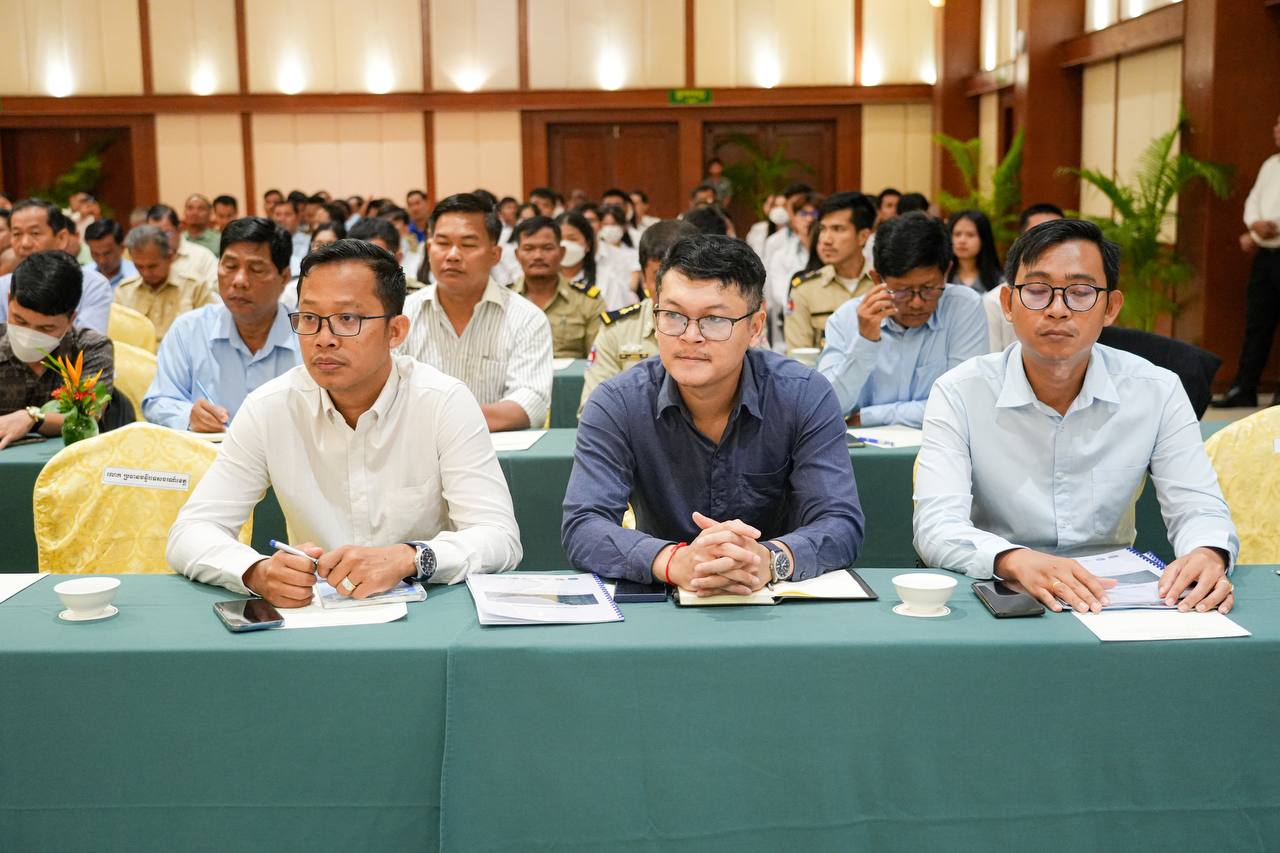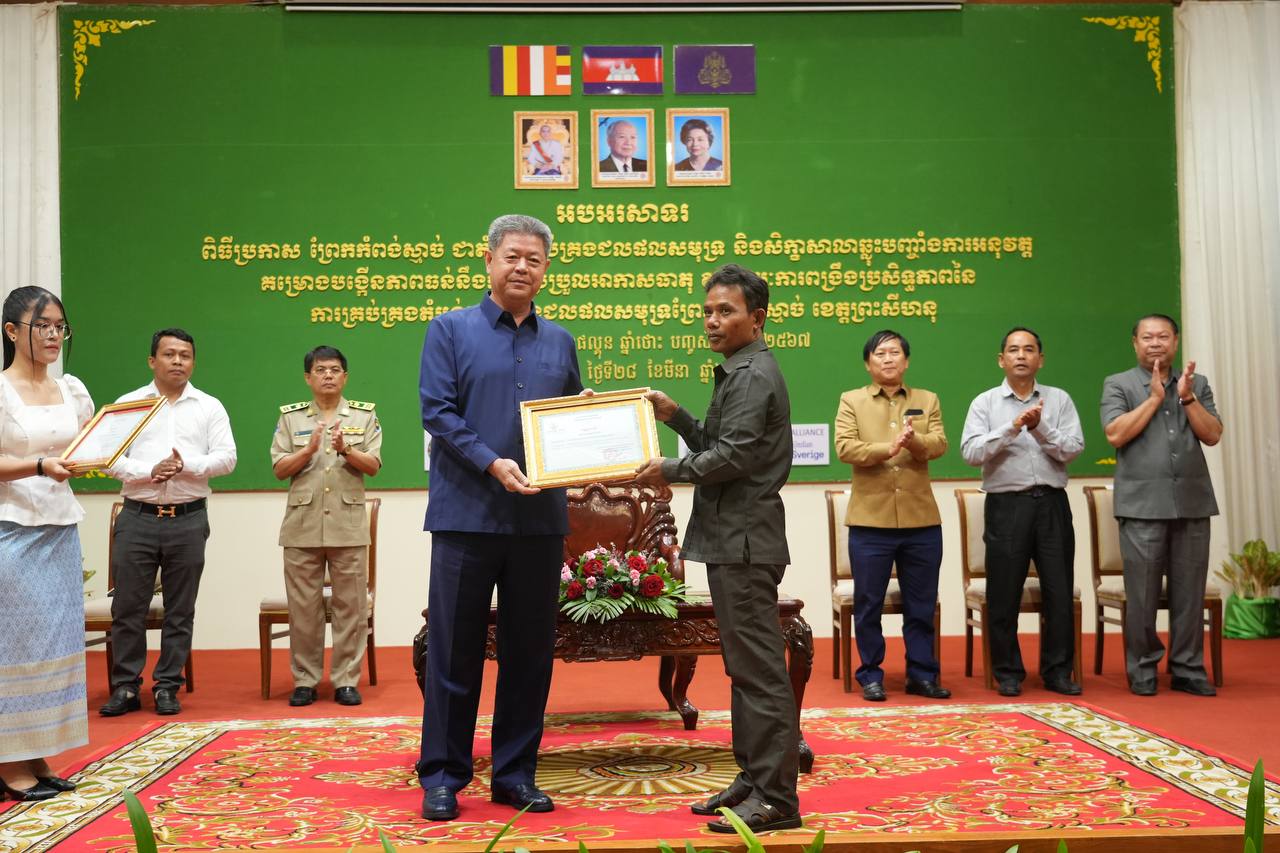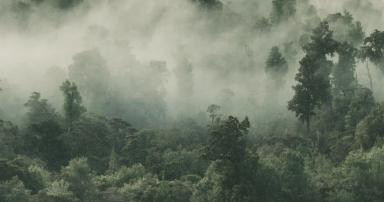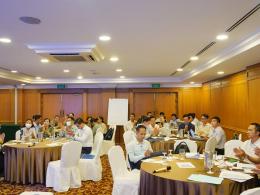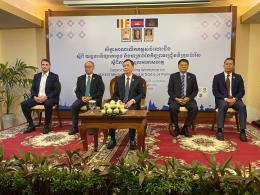The CCCA3 funded project “Enhancing Climate Resiliency Through Strengthening MFMA Management Effective in Kampong Smach” has ended with remarkable results as on 28 March 2024, the ceremony of the recognition of Prek Kampong Smach as a Marine Fisheries Management Area and Reflective Workshop on the project results was conducted. The event was presided over by H.E. Kuoch Chamroeun, Governor of Preah Sihanouk Province, with the participation of provincial deputy governors, MAFF’s representatives, authorities, DPs and local organizations, and local communities under Kampong Smach MFMA, for a total of 226 participants.
The event aimed to disseminate the achievement of the Climate Change Resilience Implementation Project, supported by the CCCA3. This project shows remarkable achievements and success, including a legal binding on the establishment of Preak Kampong Smach as MFMA, the protection and conservation mechanism of the MFMA (e.g. policy, legal and institutional arrangement), capacity building and awareness raising of local authorities and coastal communities for management and monitoring resources in Kampong Smach, as well as the development of communication materials and studies toward sustainable marine protection and conservation activities in the area.
This entailed pursuing the legal pronouncement for Kampong Smach to be officially declared as a protected area: Prek Kampong Smach earned the official designation as a Marine Fishery Management Area (MFMA) through Prakas number 504 dated December 26, 2022 issued by the Ministry of Agriculture, Forestry and Fishery. By having this legal framework, the area organized communities have the mandate to enforce laws and policies. The process of declaring it as a protected area has delineated clear boundaries of the identified zones and defining the prohibited and permitted activities within each zone. The process was conducted through a participatory process and involving all relevant stakeholders to promote ownership of the results.
Information and public awareness were conducted to promote uptake of the zoning scheme and ensure that rules are communicated and enforced. Information center was built in the area which can also serve as learning site for schools and other groups later on. Community groups have been trained and mobilized to conduct regular patrolling operations in the sites to prevent illegal activities.
In addition to this, the project team has worked to initiate the eco-tourism activities as a supplemental livelihood source for communities, organizing the communities and conducting sustainable eco-tourism training to some team member and community, as well as developing a roadmap for eco-tourism.
